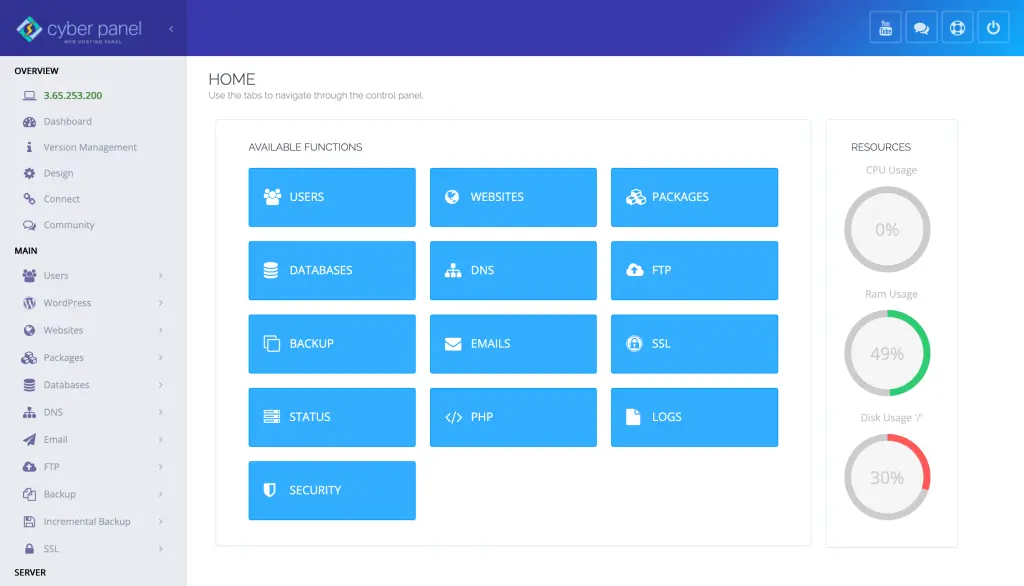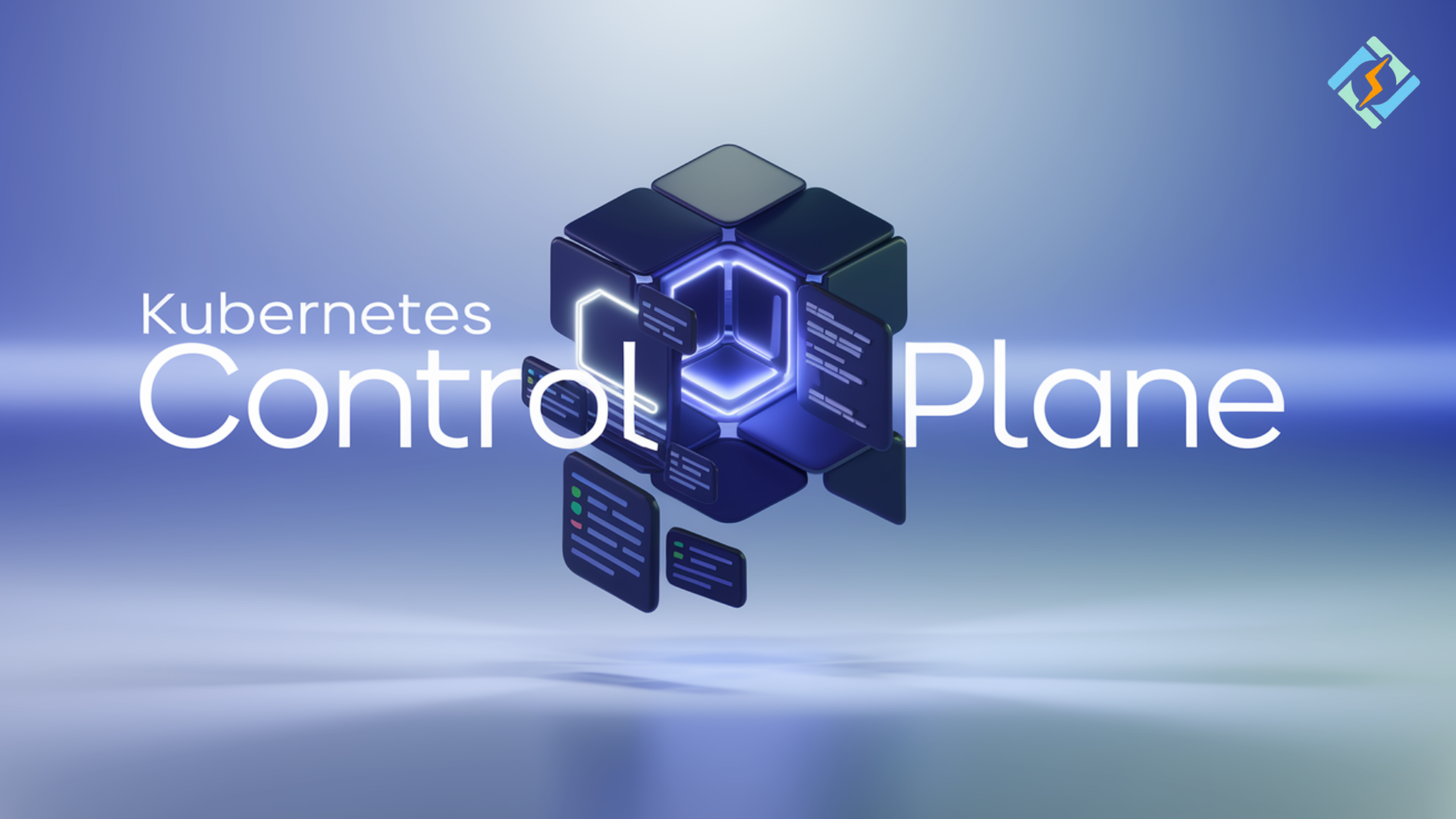Any Kubernetes cluster is driven by the brain of Kubernetes, which is the Kubernetes control plane. It’s the place for all the magic to happen, scheduling workloads and managing their life cycle. Without having a well-oiled control plane, Kubernetes would be unable to orchestrate containers effectively. If you are somebody who is deploying applications in Kubernetes, then adaptation, as well as a reasonable understanding of how it works and what you get out of it, is essential for you.
The control plane ensures that your applications are running smoothly (and securely) and scales them if they get bigger. It handles disparate nodes in a given cluster, making sure they’re all healthy and balanced. In this article, we’ll go deep on the control plane, what that is, and how it’s different from the data plane. By the end, you will have a solid idea of how the Kubernetes control plane maintains your cluster in great condition.
What is the Control Plane in Kubernetes?
The control plane is the nerve center of the Kubernetes cluster. It manages decisions around scheduling, the maintenance of the cluster state, and response to events. It’s responsible for ensuring your apps are always running as desired.
At a high level, the control plane is a manager of your cluster. It receives your deployment requests, determines where to run them and watches to ensure everything is as you expect it to be. Without it, the cluster would not be able to function or recover from failures.
What are the Main Components of the Kubernetes Control Plane?
The control plane is made up of several important components:
| Component | Role |
| kube-apiserver | Acts as the front end of the control plane, handling all REST API requests. |
| etcd | A consistent, highly available key-value store for cluster data. |
| kube-scheduler | Assigns pods to available nodes based on resource needs and policies. |
| kube-controller-manager | Runs various controllers that monitor cluster state and reconcile differences. |
| cloud-controller-manager | Integrates with cloud provider APIs to manage cloud resources (if needed). |
Each component has a specific job to ensure your cluster runs smoothly. They work together to keep everything balanced and healthy.
Get exclusive access to all things tech-savvy, and be the first to receive
the latest updates directly in your inbox.
How Does the Kubernetes Control Plane Work?
Its control plane, its components control everything in the cluster. Here’s how:
- The front door is the kube-apiserver. It listens for commands and updates the cluster state we expect in etcd.
- The kube-scheduler is responsible for finding unscheduled pods and scheduling them on the most appropriate node.
- Controllers such as the kube-controller-manager observe the state of the cluster and make changes to bring it in line with the desired state.
- The cloud-controller-manager, if you are working in a cloud environment, aids in integrating with cloud resources.
This cooperation ensures the cluster can respond with the necessary resources, in the right place at the right time, every time.
Kubernetes Control Plane vs Data Plane: What Is The Difference?
The control plane oversees cluster members and makes decisions at a higher level. Meanwhile, the data plane, or the worker nodes, is where your workloads are actually executed. The corridor is made up of the control plane, representing the brain, while the data plane, the Logstash processes, represents the muscle doing the work.
| Aspect | Control Plane | Data Plane |
| Role | Manages the cluster, makes scheduling decisions | Runs your workloads (containers and pods) |
| Components | API server, etcd, scheduler, controllers | kubelet, kube-proxy, container runtime |
| Responsibilities | Cluster management, policy enforcement | Running apps, handling traffic, and maintaining health |
Both are essential for Kubernetes to work properly. The control plane plans and monitors, while the data plane executes and runs your applications.
Why Is the Control Plane Critical for Kubernetes?
The control plane makes sure that your cluster is healthy and balanced at all times. It watches your workloads, schedules them, and keeps an eye on everything that happens in the cluster. If something isn’t right with the control plane, your applications may not run or have problems scaling. It is also in charge of all security and policy — your workloads are safe because the control plane authorizes them and makes sure they only do what your rules allow them to. Best practices to keep your control plane healthy include high availability, securing access, regular backups, resource monitoring, and regular updates. It keeps the control plane stable, safe, and effective.
Role of CyberPanel

While CyberPanel, i.e., web hosting control panel, is not part of the Kubernetes ecosystem, it can help manage your Kubernetes. It can help to make Kubernetes more manageable, simple, and efficient. It offers streamlined application deployment, centralized server management, and enhanced security. Your CyberPanel can help with that, letting you focus on other parts of your infrastructure.
FAQs
Q1: What if the control panel fails?
The data plane will continue running all your existing workloads, but you won’t be able to deploy anything new or make any changes until the control plane is back up.
Q2: Can I run the control plane components on the same node as my workloads?
While possible, it is not recommended for production settings. For reliability’s sake, the control plane components should be on separate nodes.

Q3: What is the main job of the kube-apiserver?
It is the gateway for all your cluster operations, interfacing with your requests and updating the cluster’s state in etcd.
Q4: Why is etcd so crucial?
Etcd keeps the whole state of your cluster, including your deployments, secrets, and configuration data.
Q5: How can I monitor the health of the control plane?
You can use monitoring tools like Prometheus and Grafana.
Final Thoughts!
Your control plane is the key to your Kubernetes cluster’s success. Understanding its components and employing best practices helps you create a dependable, civilized, and adaptable environment. Ready to improve your Kubernetes skills? Discover your control panel now!



